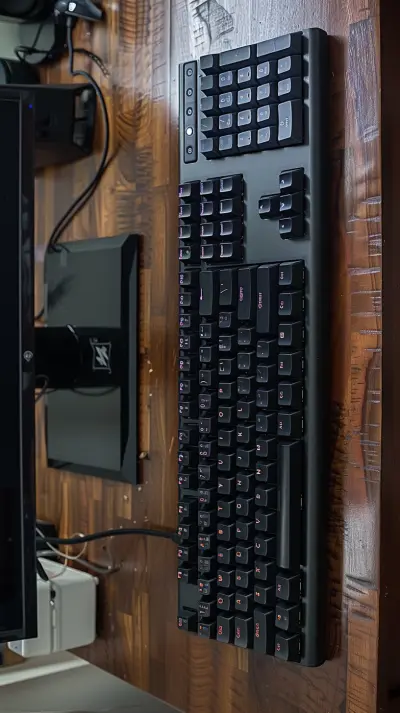How Game Developers Use Events to Test New Concepts
5 September 2025
In the fast-paced world of gaming, developers are always looking for new ways to innovate and elevate the player experience. But let’s be honest—coming up with fresh ideas is risky. Gamers are a tough crowd, and no one wants to waste months (or even years) building something that might flop. This is where events come into play—literally. Game developers often use in-game events as testing grounds to introduce, evaluate, and refine new concepts. It's like throwing spaghetti at the wall to see what sticks, just with more pixels and fewer carbs.
If you're wondering how this works or why it’s such a smart strategy, stick around. We'll break it all down for you.
What Are In-Game Events?
Before we dive into the nitty-gritty of why they're the perfect testing ground, let's define what we’re talking about. In-game events are limited-time activities or features introduced into a game. They could be seasonal celebrations, one-off challenges, or themed quests. For example, think about "Christmas Specials" in games like Fortnite or Halloween-themed events in World of Warcraft. These events spice things up and give players a reason to log in and check out what's new.But here's the kicker: more often than not, these events aren’t just about celebrating holidays. They are sneaky little playgrounds where developers quietly test new ideas. Let’s dig deeper into how they pull this off.
Why Do Game Developers Use Events for Testing?
Testing new concepts in games is tricky business. It’s not like a science experiment where you can control every single variable. Gamers are unpredictable, and their response to changes can make or break new features. Events, however, offer a low-risk environment perfect for experimentation. Here’s why:1. They’re Temporary
Events are like pop-up shops—they appear for a short time and then vanish. Because of this, developers can introduce something new without committing to it long-term. If it works, great! If not, no problem—it was just a "limited-time" thing. No harm, no foul.It’s the gaming equivalent of trying out a new haircut. If it turns out amazing, you'll probably keep rocking it. If not, oh well, it'll grow out eventually.
2. They Create Buzz
In-game events naturally attract attention. Players love fresh content, especially when it’s exclusive and time-sensitive. By tying new concepts to events, developers maximize player engagement. And let’s face it: the more people participate, the more accurate the feedback.Even if the new feature doesn’t hit the mark, the event itself can still be a win because it draws players back into the game. It’s a win-win situation for developers.
Types of Concepts Developers Test in Events
Not all in-game events are built the same. Developers can use them to test a range of concepts, from mechanics to aesthetics. Let’s break down what these concepts typically look like:1. New Game Mechanics
Sometimes, developers want to see how players react to new gameplay mechanics. For example, an event might introduce a special weapon, a new movement system, or a unique set of rules. If players love it, developers might integrate it into the main game.Take Fortnite, for instance. Epic Games often tests changes to their popular battle royale formula during events. Remember when they introduced the Thanos Infinity Gauntlet mode? It was a wild experiment that paved the way for more crossovers and unique game mechanics.
2. Fresh Visual Styles
Design plays a huge role in how players experience a game. Events are the perfect time to try out new art styles, skins, or user interface designs. Developers can gauge player reactions without overhauling the entire game.Think about it as trying on a new outfit before committing to a whole wardrobe change. If players fall in love with the look, it might become a permanent feature.
3. Narrative Experiments
Some events introduce new storylines or characters to the game. This allows developers to test whether players are invested in certain narratives. Do they care about the new villain? Are they intrigued by the mysterious questline? If the story resonates, it could lead to a larger expansion or even a spin-off.4. Monetization Strategies
Let’s face it: games are a business. Developers often use events to test the waters with new monetization strategies. Maybe there’s a limited-time loot box, or maybe a special skin costs more than usual. By analyzing how players respond, developers can figure out the best way to rake in cash without annoying their audience.
How Developers Analyze Feedback
So, what happens after the event ends? The developers don’t just sit around patting themselves on the back—they dig deep into the data. Here’s how they evaluate whether the new concept was a hit or a miss:1. Player Participation Rates
The first thing developers look at is how many people actually engaged with the event. A high participation rate often signals that the concept was appealing, even if it needs fine-tuning.2. Community Feedback
Gamers are never shy about sharing their opinions (for better or worse). Developers monitor social media, forums, and in-game chats to see what players are saying. Are they raving about the new feature? Complaining about bugs? This qualitative feedback is golden.3. Performance Metrics
Numbers don’t lie. Developers track how the new concept impacted gameplay. Did the event increase the average time players spent in the game? Did it boost sales? This data helps them decide what’s worth keeping.4. Player Retention
One of the ultimate goals of any change in gaming is to keep players coming back. Developers pay close attention to whether the event lured in new players or re-engaged old ones. If it did, that’s a huge win.Real-Life Examples of Event Testing in Gaming
Still not convinced? Let’s take a look at some concrete examples of games that have successfully used events to test new concepts:1. Overwatch Seasonal Events
Blizzard Entertainment is a master at event-based testing. In Overwatch, they’ve used seasonal events like "Archives" to experiment with new PvE (player versus environment) modes. The fan reaction to these events helped shape future updates and expansions.2. Apex Legends Limited-Time Modes
Respawn Entertainment uses limited-time modes in Apex Legends to test everything from new weapons to map layouts. These experiments allow them to make significant changes to the core game without alienating the player base.3. Pokémon GO Community Days
Niantic has used Pokémon GO Community Days to try out new catch mechanics and item distributions. The simplicity and scale of these events make them an ideal testing ground.Why This Strategy Works
So, why are events such a brilliant way to test concepts? It boils down to two key reasons: flexibility and transparency. Developers can experiment without making permanent changes, and players understand that events are all about trying something new. It’s a healthy relationship where both sides benefit.What This Means for Gamers
For you, the gamer, events are more than just fun distractions—they’re a backstage pass to the development process. By participating, you’re directly influencing the future of the games you love. Pretty cool, right?So the next time you log into an event, take a moment to appreciate the thought and strategy behind it. Who knows? That quirky new feature you’re testing out might just become the next big thing.
Conclusion
In-game events are more than shiny add-ons; they’re essential tools for game developers. Whether it’s testing new mechanics, aesthetics, narratives, or monetization models, events offer a safe and effective way to innovate. And for players, they’re a chance to experience something fresh while shaping the future of gaming.Now that you know how events are used to test new concepts, keep an eye out the next time your favorite game rolls out a limited-time mode. Who knows? You might just witness the birth of gaming’s next big idea.
all images in this post were generated using AI tools
Category:
Gaming EventsAuthor:

Leif Coleman
Discussion
rate this article
1 comments
Astralis Strickland
Events provide game developers a unique opportunity to gather real-time player feedback, allowing them to refine gameplay mechanics and assess audience reactions effectively.
September 17, 2025 at 3:22 PM

Leif Coleman
Absolutely! Events are invaluable for developers to gain immediate insights and make informed adjustments based on player feedback.


